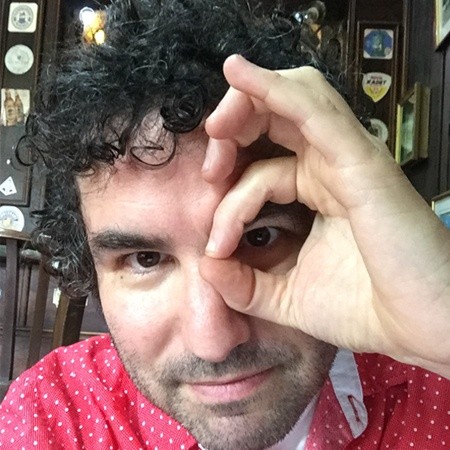Karl Popper is remembered today mostly for two things: as a historian of science whose idea of “falsification” influenced modern scientific thought, and also for his political “open society” ideas that influenced George Soros among others. He’s less widely remembered as Wittgenstein’s cousin, as well as being an Austrian Jewish thinker in the era when Austrian Jewish thinkers defined a bunch of ideas that have, well, defined the ideas that have quietly governed the world since Edward Bernays and your uncle Siggy, I’m looking at you, as well as many others I’m forbidding myself from mentioning.
With someone as thoughtful and quietly influential as Popper, the pressing question on everyone’s mind is: how would he have run a Google Ads/AdWords campaign if he were a PPC?
To answer that, we’ll focus on his falsification ideas, not his “open society” ideas. Popper’s argument is this: scientists usually tried to prove things by, well, proving something is true. One plus one is two, right? But Popper argued that you have to think about it the opposite way: you have to prove not just that one and one is two, but that one and one is NOT three.
Think about it this way. I may have proven that A plus B is C. But perhaps there is a situation that you didn’t think of or predict where “B” could change in value so that B, under other conditions, may be different — so the result isn’t C, but D! To use a canonical example: just because I’ve proven that swans are white, doesn’t mean that there doesn’t exist a black swan.
Or to think about falsification in another way: it can’t be real science if it can’t be falsified. To be truly scientific has to give people the ability to prove you wrong. “I love my mom” can’t be a scientific statement because, how could you ever prove that wrong? Even if I did the most miserable things to her, I could still argue that it is out of love!
The solution–at least in my interpretation of Popper–is two-fold: every hypothesis you put forward has to have a reasonable and realistic way to be falsifiable; and I have to go out of my way to try to falsify it.
Now, how does all this apply to PPC?
Well! First of all, here’s a pattern that’s too common and, I admit, I do it myself, too: just going into a campaign and tweak, tweak, tweak.
That’s great, but are you sure your changes had a positive impact? The way almost all PPCs do it–in the real world–is by making a bunch of little changes at the same time. And you have a bunch that Little Tweak X you did lead to the improvement (or worsening) but perhaps it was Little Tweak Y? You changed the ad copy and the bids–which one do you think led to the change in the result? How do you know?
This is coming to the heart of the falsification approach: come up with a theory, test it, try to prove it false, and try to control as many other variables as possible.
The real-world challenge of doing this is, almost always, it’s hard to control the other variables:
- Your client wants some ad copy to change
- There are obvious problems you want to fix
- The budget is huge so you have immense pressure to “just apply that little change” because even small changes lead to drastically different outcomes.
- The fight against the Calendar is real: you need to show results every month, and tests just take time to run.
Given these challenging real-world constraints for scientific testing, how can you go about falsifying your theories as to what is causing the changes?
I’d suggest three starter approaches.
First, a good starting point is to even have hypotheses beforehand. Don’t just make a change; make a change with a particular test in mind. Even if that’s not quite at the level of rigor of making your hypothesis falsifiable, merely having a hypothesis gets you halfway there, puts you ahead of almost everyone else, and gets you started thinking in this scientific way.
Second, make your hypotheses falsifiable. That means that a bad PPC hypothesis is “people will like this ad more”; a better one is “our CTR will go up 10% as compared to the current CTR, from 5% to 5.5%.”
Third, purposefully try to prove your hypothesis wrong. If the CTR does go up from 5% to 5.5%, look at what else changed: did you happen to get more traffic from a particular jurisdiction? Are you selling umbrellas and rainstorms started coming to your target market in the same week?
And here’s an even better version of falsifying your hypotheses: writing it down, keeping track, and keeping lists of the variables you test it again. That will make it easy for you to go back in 90 days and do a more sophisticated and better version of that test.
In short, Karl Popper, unlike Kant, would be a fantastic PPC.





